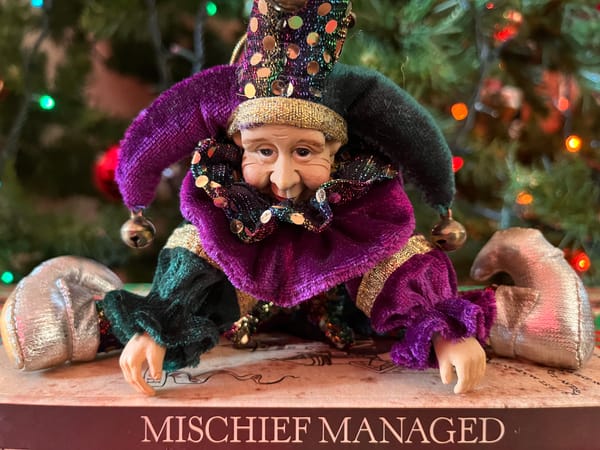From teachers to writers

If I had to sum up the end of summer in one word, it would be school. Unless tickled by the idea of rejoining a friend group or laying eyes on their crush, the average high schooler will harbour feelings of dread coupled with sweaty palms and the old familiar nightmare as the time approaches. But it isn’t the pupil that interests us here; we are looking at the teacher.
The teacher is rested. She is calm and, armed with the confidence that only two good months of school abstinence can give her, she is ready to start again. A new beginning: this year, she is going to make it. She will find the precious work-life balance, she will be a great teacher, she will not take any work home and she will make time for her writing. She is confident.
Quick fast forward: it’s mid-September, work is piling up, she wakes up early to mark tests, exhaustion is creeping up. The plan is already slipping through her fingers. She must do something now.
Hadn’t people done this before? How did they manage? What’s their secret? Is it even possible? Too many questions, not enough answers. It’s her lifeline to learn from the ones that came before her. It’s time to learn from the past. So, this article will be dedicated to authors who have once walked the path of teaching. Let’s dig in.
JK Rowling

The beloved author of the Harry Potter series has always wanted to be a writer. One year after conceiving the idea for the young wizard on a train from Manchester to London, she decided to take on a post in Portugal, teaching English as a foreign language.
There, she taught in the evenings and wrote in the mornings. As fate would have it, she got married to a young Portuguese journalist and gave birth to a baby girl. Her marriage, however, did not last long. When things went sour, she took her daughter and moved to Edinburgh, Scotland, where her sister lived.
In Edinburgh, she was about to start training as a teacher. She was set on finishing the first book before starting the programme. “I knew I would have no time at all to write,” she reported in an interview. Joanne continued to study full-time while trying to write in every spare moment.
J.K. Rowling is well-known for choosing to write in cafes while her daughter slept next to her. She admits that juggling a baby, teaching and writing wasn’t an easy combo. “It was going pretty slowly,” she says in an interview at Nicholsons’ – one of her favoured cafes. “I’m studying full time, still looking after my daughter and writing time was pretty thin on the ground at that point.” She also mentions that she didn’t have any illusions about writing full-time. Even though this was what she ultimately wanted, her realistic plan was to teach part-time, write part-time: “My realistic ambition was teach part-time, write part-time, which would have been a great life – I like teaching.”
It’s fascinating to watch how things turned out, given that her craziest wish was for a kind review in the papers and a part-time teaching, part-time writing arrangement. Rowling’s break happened when Harry Potter came out in America. The sum she was offered made it possible to do what she ultimately wanted: write full-time.
Philip Pullman

Philip Pullman has always had a knack for stories. He, too, wanted to write from an early age. A storyteller by nature, the author of “His Dark Materials” had been writing and teaching for a very long time. He was 25 years old when he started teaching English at Oxford Middle Schools. There, he wrote school plays and practised the art of storytelling. He used to tell stories from “The Iliad” and “The Odyssey” to his pupils to keep them quiet, he says, but his true motive was to practise telling stories: “That was the best training I could possibly have had, and it rid me forever of self-consciousness as a storyteller.” After spending more than a decade teaching middle schoolers, Mr Pullman undertook the post of teacher trainer at Westminster College, where he continued teaching and writing for eight years. In 1996, he turned to writing full-time.
Even though Philip Pullman had a long teaching career alongside writing before committing to it full-time, there is very little documentation on how he managed to pull through. We know that his teaching years were precious to him because he could tell stories to his pupils and therefore improve his craft. “It was the making of me as a storyteller”, we read in one of his speeches transcribed in Demon Voices. But his writing was going on full force during his teaching years. How did he juggle the two?
There is no reference to struggling at all in all the materials I looked at. Perhaps Mr Pullman had ample time to teach and write. When asked if more teachers should become children’s writers, he answers that a lot of writers were teachers back in his day, but he is quite pessimistic about the future. Teaching has changed. These days, educators enjoy much less autonomy and too many responsibilities: “I don’t know where the next generation of children’s authors is going to come from, by the way, but I predict that they won’t come out of the ranks of the teachers. Young teachers today have too many other stupid things to do to have time or energy left at the end of the day to sit down and write, and the National Curriculum forbids them to do what I used to do, and simply tell stories for the love of it when they want to”. Although he paints a bleak picture for the aspiring teacher-writer, Sir Pullman sounds about right.
Stephen King

Stephen King has also taken great pleasure in writing from a very young age. A prolific horror fiction writer, Stephen King has also made his debut while juggling a teaching job and a family. In his memoir, On Writing, he makes all the gory details come to life.
Stephen King graduated with a teaching degree following his mother’s concerns. After graduating, he found a job in a laundromat while he continued writing, publishing short stories in magazines, and raising his young family. In 1971, he landed an English teacher position at Hampden Academy. At first glance, King remembers, the money was good compared to the laundromat, but once the workload of correcting papers and after-school duties were factored in, he realized it wasn’t as lucrative as it seemed. After his first novel, Carrie was accepted, he explains that his teaching salary was about $30,000 for four years’ work, whereas even a paperback sale might bring in that much at once.
However, money wasn’t the only issue. When he started teaching, Stephen King was in for a big surprise. His writing was taking a blow. Here is what he writes in his memoir: “The bigger deal was that, for the first time in my life, writing was hard. The problem was the teaching. I liked my coworkers and loved the kids—even the Beavis and Butt-Head types in Living with English could be interesting—but by most Friday afternoons, I felt as if I’d spent the week with jumper cables clamped to my brain. If I ever came close to despairing about my future as a writer, it was then.” He had so little energy left for writing and feared he would end up as a burned-out teacher with unfinished manuscripts in his desk.
Luckily, he did not reach the depths of despair. The credit goes to his wife, Tabitha. It was she who unearthed the crumpled chapters of Carrie and urged him to continue the story. She gave him the space he needed to write. It was Tabitha’s belief in his writing that kept him going during the difficult Hampden years; if she had suggested it was wasted time, “a lot of the heart would have gone out of me”, he writes. So he continued writing in the evenings and on the weekends. By the end of 1973, he had a gorgeous publishing deal for Carrie. After two years in teaching, he could break off.
Reflections
None of these authors was wealthy or surrounded by perfect support systems. Each found different ways to keep going. What they shared was persistence – continuing even when time was scarce, even when circumstances were difficult. We often expect ourselves to excel in everything: to be good teachers, to write remarkable books. But what if we fail? What if we fall short in the role that matters less to us? Failure, as Rowling reminded graduates at Harvard, can be a gift: “Had I really succeeded at anything else, I might never have found the determination to succeed in the one arena I believed I truly belonged.”
Allowing space for failure also means accepting imperfection. Pullman once reflected, “I was a rotten teacher. Once in a while, I was brilliant—usually outside the classroom—but not a reliable teacher.” Perhaps teaching and writing are both as imperfect as life itself. There is no golden rule for balancing them. In the end, what matters is deciding where your deepest commitment lies – and having the courage to keep going.
References
JK Rowling
https://news.harvard.edu/gazette/story/2008/06/text-of-j-k-rowling-speech/
https://www.hp-lexicon.org/source/interviews
https://www.newyorker.com/magazine/2012/10/01/mugglemarch
Philip Pullman
https://www.killyourdarlings.com.au/article/kill-your-darlings-in-conversation-with-philip-pullman/
https://aeon.co/essays/a-rare-interview-with-philip-pullman-the-religious-atheist
https://booksforkeeps.co.uk/article/authorgraph-102-philip-pullman/
Stephen King
King, Stephen. On Writing: A Memoir of the Craft. 10th Anniversary ed., Scribner, 2010.




